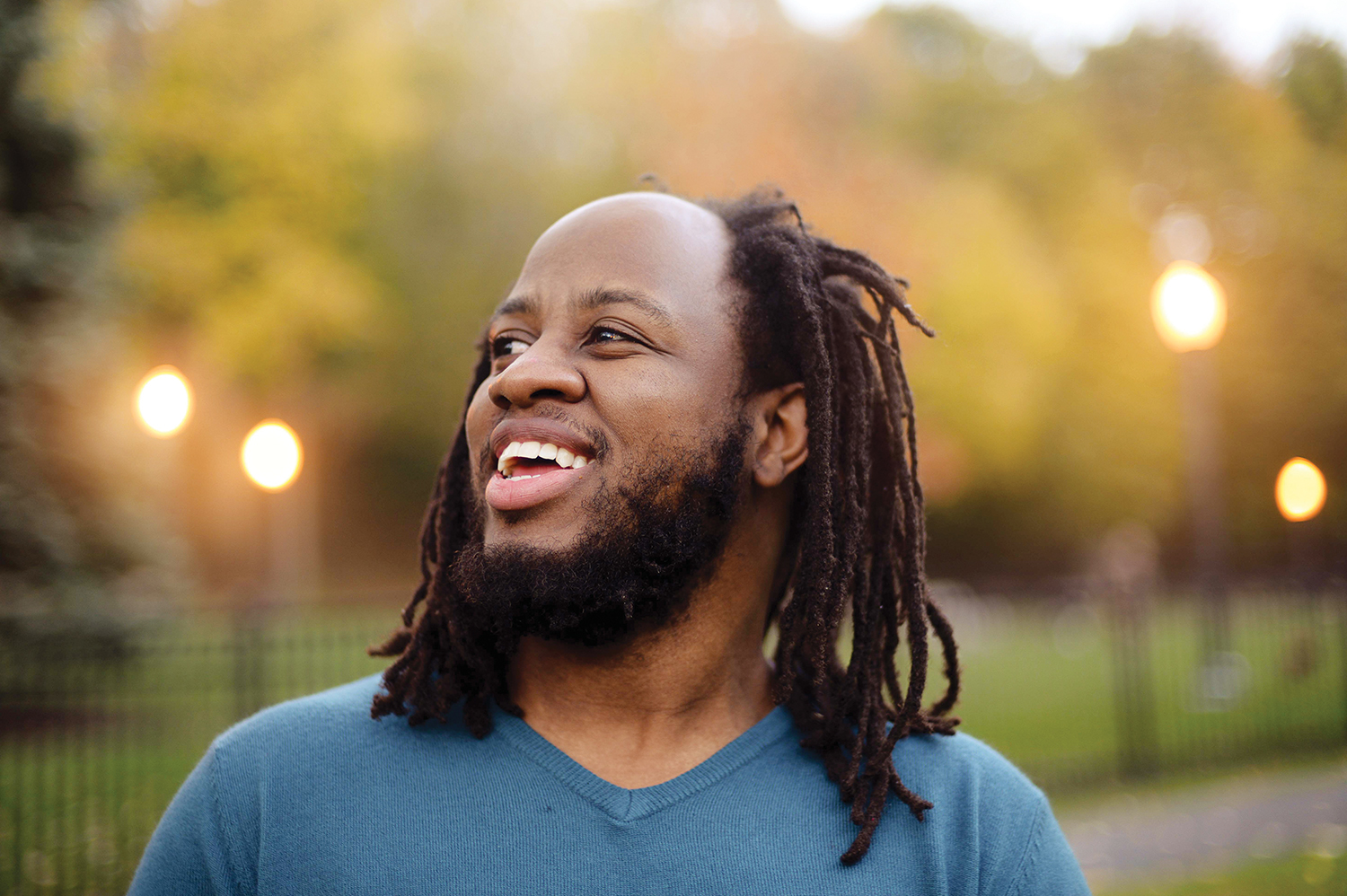Brandon Wint is an award-winning poet and spoken-word artist who released his second album, Infinite Mercies, in February this year, set to the music of local pianist Rebecca Parsons. The album is divided into two parts, one exploring Wint’s own family history and the other a recent break-up, with each half showcasing the album’s themes: Gratitude, grief and passion.
Q: What was the process like for creating Infinite Mercies?
A: From the very beginning, the potential of the project excited me; the opportunity to create a body of work in a city that is still new to me in many ways. I was glad to be able to use the framework of my artistry to map out the ways in which living in Edmonton is changing me or the ways in which I’m growing at this time in my life. It was a great pleasure to have my talents and Rebecca’s talents combined in this way. Her sensitivity and her desire to honour the beauty and poignancy and substance of my poetry made the album what it was.
Q: How do you create a spoken-word album?
A: Spoken-word albums are difficult. The difficulty arises from the fact that, as compared to other forms of recorded music, there aren’t that many spoken-word albums that exist. Spoken-word doesn’t exist as a genre so when you endeavour to make a spoken-word album, it’s not the same as making a jazz album or a country album. In each one of those cases, there are templates or conventions, but, in the case of spoken-word, there’s no real template because the poetry is what leads. When I ask myself ‘How do I want to create a musical texture around my poetic work?’ the possibilities are quite endless. It’s a matter of carefully refining those possibilities until you have something that is exciting to you but also manageable.
Q: What was it like releasing your album at the Black Arts Matter Festival?
A: I felt like it was a long time coming in a certain way. Black Arts Matter Festival is only two years old and I feel like the seed of that festival arose at a time when I was very close to where that seed was germinating. To watch the festival grow and be able to participate in a more active, public way this year was a great affirmation for me. It felt like the place and the stage where I most wanted to share this new work with people. To release it at Black Arts Matter felt like the culmination of a very dynamic story.
